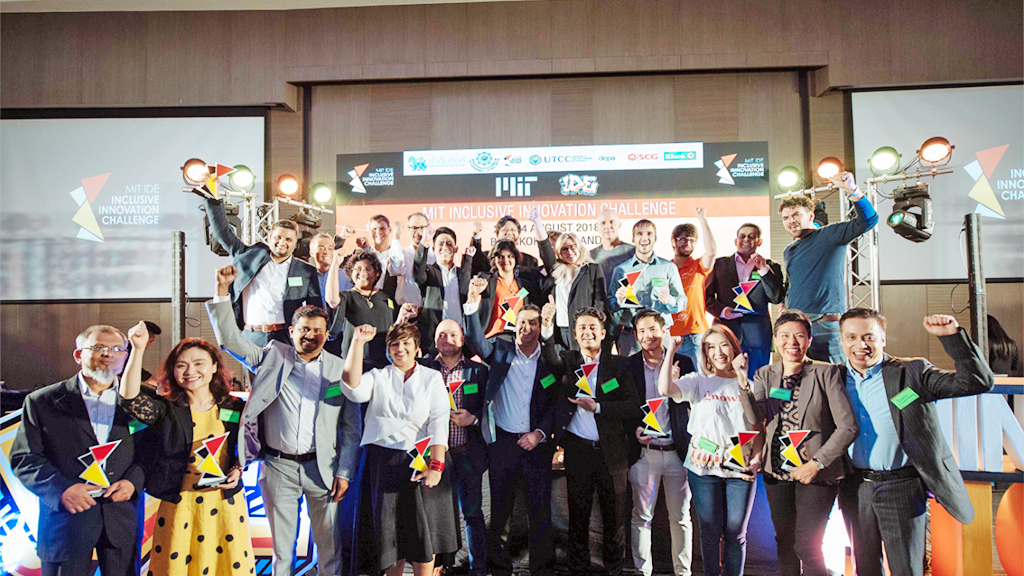Promoting Inclusive Innovation In Asia And The Pacific
 Contributed by
Andrew Thornley
September 12, 2018
Contributed by
Andrew Thornley
September 12, 2018

The importance of inclusive innovation is gaining traction in Asia.
Mix persistent global income inequality with rapid technological innovation and you have the key ingredients driving inclusive innovation—innovations in products, processes, and product delivery systems that address the needs and improve the welfare of those most excluded due to factors such as education, poverty, gender, location, and disability. MIT defines inclusive innovation more succinctly as “the use of technology to skill and empower workers at the bottom and middle of the economic spectrum”.
The importance of inclusive innovation is gaining traction in Asia. Just last month, the UN Economic and Social Commission for Asia and the Pacific (ESCAP) released an interesting short paper on Mainstreaming Inclusive Technology And Innovation Policies That Leave No One Behind. This paper suggests that the most effective approaches at supporting inclusive technology and innovation include inclusive growth strategies that promote industrial inclusion and strategies targeted at removing barriers that certain groups face as producers and consumers of technology. Last year, ESCAP hosted a Regional Consultation on Inclusive Technology and Innovation Policies in Bangkok.
At the level of practice, competitions are a familiar format for spurring and identifying innovative solutions—and these now include inclusive innovation. One example is the MIT Inclusive Innovation Challenge, which hosted its Asia finalists at a regional event in Bangkok in 2018. Out of 165 entries, 12 finalists were selected across four categories: financial inclusion; income growth and job creation; skills development and opportunity matching; and technology access.
A look at the following three finalists in the skills development and opportunity matching category helps to provide more insight into what inclusive innovation really means.
Connected Women aims to improve the economic participation of women in the Philippines through the adoption of technology and digital skills. Connected Women is a social impact start-up that provides job matching for entrepreneurs and virtual assistants. In their own words, “We recruit women virtual assistants in the Philippines, provide them with access to connectivity, technology and training, and match them with job opportunities with businesses and startups”.
This platform recognizes the unique challenges faced by women—particularly in tackling discrimination and an appropriate work-life balance—while also providing training as virtual assistants to women who otherwise would not have such opportunity due to lack of education, mobility, and so forth. In February 2018, Connected Women signed a Memorandum of Agreement with the Philippine Department of Information and Communications Technology for a Women’s Empowerment ICT initiative to provide a specialized program for women focused on digital skills development for self-employment.
Singapore-and-Silicon-Valley-based Gnowbe defines itself as “a mobile micro-leaning and engagement solution to help the modern workforce learn faster and better”. Micro-learning is designed to be fast and convenient, providing specific content in smaller learning packages such that those learning can control what and when they learn. By partnering with accredited training bodies (corporate and academic partners), Gnowbe aims to connect quality content with needed skills and mindsets to improve employability. Gnowbe provides micro-learning for enterprises and mobile learning for training, and also offers a data analytics platform for learners and employers to measure performance and progress. Clients already include big-hitters such as Unilever, Hertz, and Singtel. But Gnowbe’s inclusive growth strategy is in using mobile technology to educate and empower those who may not have access to classrooms but do own a mobile phone.
iMerit is an older kid on the block, having launched in 2012. Like Gnowbe, iMerit is based in both the U.S. and Asia, with in-house staff in New Orleans and India. iMerit provides data annotation services that, simply put, help clients “extract structured insights from large volumes of unstructured data”. Services offered are extremely broad and client-focused, including data extraction, sentiment analysis, image transcription, and fintech technical support. And while all of this sounds interesting, what makes iMerit’s stand out is its social impact for-profit model:
“Our impact sourcing and skilling model empowers bright, underprivileged men and women while providing the technology sector with a highly motivated, engaged, and scalable workforce. More than 50% of our employees are women and over 80% come from underprivileged backgrounds.”
As such, iMerit is not only growing and driving positive social impact, but demonstrating a broader and timely lesson: that the rapid growth of artificial intelligence and machine learning need not necessarily lead to job losses, but rather can spur dynamic job creation with innovative and inclusive approaches.










Sorry, the comment form is closed at this time.